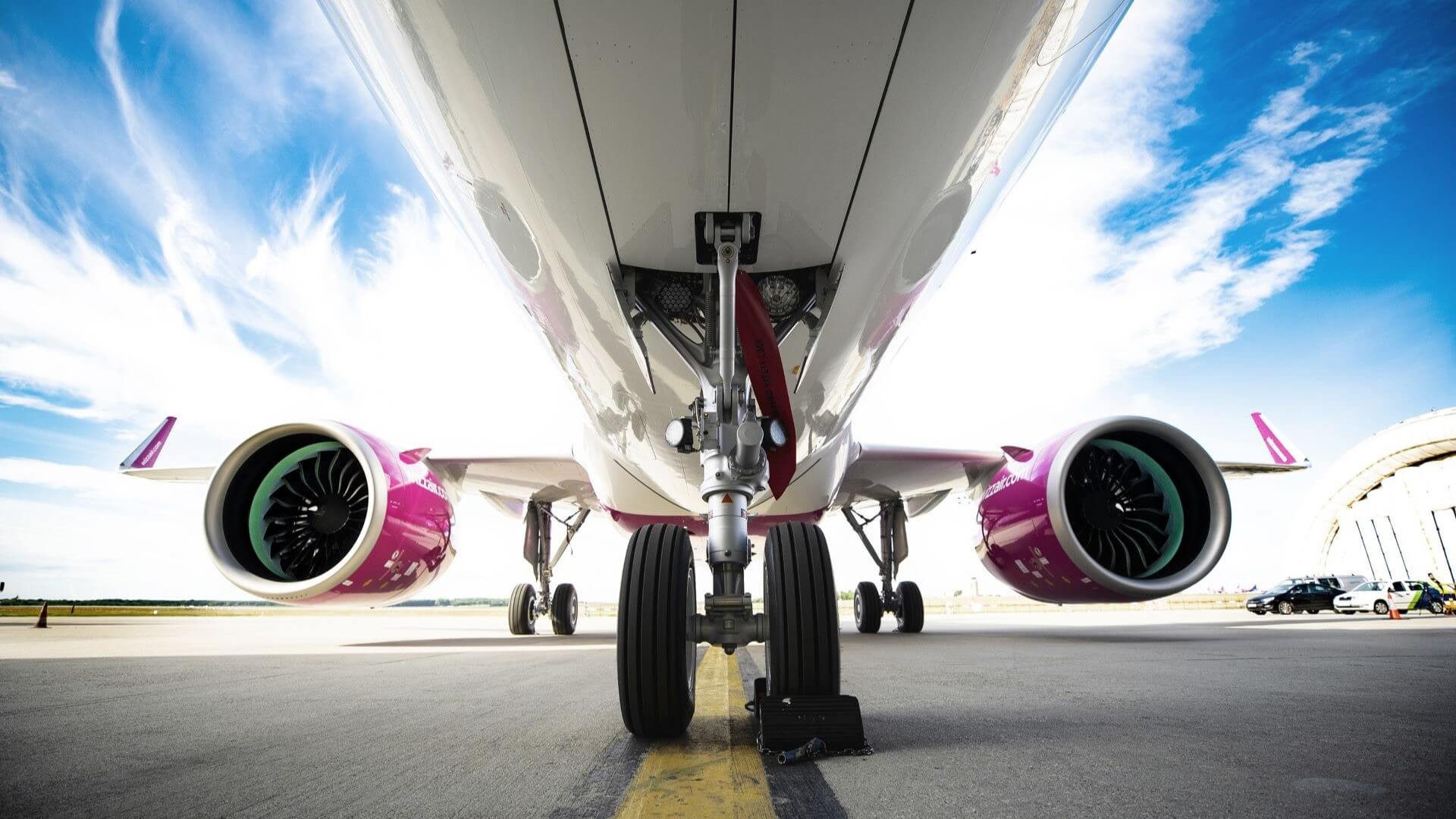Wizz Air is to trial operations using SAF across two routes in Europe
Photo: Wizz Air
Wizz Air and Airbus launch SAF trial
Hungary-based Wizz Air is to trial operations using SAF in collaboration with Airbus, the airline has announced.
The trial will involve flights across two routes, Barcelona to Budapest and Brussels Charleroi to Budapest, with SAF supplied by Cepsa and distributed by World Fuel Services. It is expected to be completed by the end of the year.
Wizz Air will purchase up to 16 tonnes of pure SAF through an up to 5% SAF blend at the Barcelona-El Prat airport and up to 18 tonnes of pure SAF through an up to 10% SAF blend at Brussels Charleroi.
The move comes as the EU implements its RefuelEU Aviation Regulation requiring airlines to increase their use of alternative aviation fuels for flights departing from EU airports from 2025 (and specifically 2% SAF in 2025, 6% in 2030 and 70% in 2050).
Airbus will support Wizz Air in this trial, providing technical guidance and expertise to maximise the efficiency of SAF integration across operations.
Vietjet operates its first flights powered by SAF
Meanwhile, Vietnamese low-cost airline Vietjet is reported to have operated its first flights using SAF.
Two Vietjet flights using SAF took off from Vietnam, bound for Melbourne, Australia, and Seoul, South Korea, last month, with fuel provided by Petrolimex Aviation.
They were the first international flights using SAF to be fuelled in Vietnam, with Director General of the Civil Aviation Authority of Vietnam, Dinh Viet Thang, commenting: ‘This is a collective source of pride for the entire industry as we contribute to environmental protection and sustainable development, affirming Vietnam’s role as a responsible member of the global aviation community.’
Universal Fuel Technologies raises $3mn to reduce SAF costs by up to 50%
Universal Fuel Technologies has closed $3mn in funding for its Flexiforming technology that it says cuts SAF production costs by up to 50%, and related carbon emissions by up to 75%.
The funding will support the advancement of the company’s proprietary process and help establish lab space in Texas for SAF sample production.
The Flexiforming technology is a chemical process that can convert sustainable materials, such as ethanol, methanol, renewable naphtha, liquefied petroleum gas (LPG), and others, into high-quality sustainable fuels or chemicals, including SAF. Flexiforming claims to enable an ethanol-to-jet (ETJ) pathway at approximately half the cost of current ETJ processes. Flexiforming is also complementary to the most common SAF production processes by upgrading low-value byproducts, the company says.
‘Sustainable aviation depends upon developing SAF that is not only cost-effective but able to work within the aviation industry as it stands today,’ says Alexei Beltyukov, Chief Executive Officer, Universal Fuel Technologies. ‘With Flexiforming, we can give SAF producers the ability to make affordable, high-quality SAF that has the characteristics needed for aircraft performance and the flexibility to scale at their own rate.’
BioVeritas launches biomass-into-SAF technology
Staying in the US, biotech company BioVeritas has launched a new technology to convert biomass via fermentation into volatile fatty acids (VFAs), a key precursor for a range of high-value products, most notably SAF.
The BioVeritas Process, when applied to SAF, provides access to a greater number of feedstocks and uses less energy to deliver aviation fuel with superior carbon intensity, the company claims. It comprises three steps. First, directed mixed-culture fermentation transforms a variety of abundant feedstocks – from purpose-grown crops to agricultural residues and waste streams – into a mixture of VFAs in a controlled ratio. This control is exerted by directing the microbial physiology and ecology of the mixed culture.
Second, low-energy acid recovery is enabled by BioVeritas’ proprietary extraction process and water recycling. Combined, these attributes minimise both distillation and evaporation requirements that typically drive high energy demand in other processes.
Lastly, the VFA-SAF step converts the longer-chain VFAs into SAF through ketonisation followed by hydrodeoxygenation and isomerisation. The latter two processes are those used in the commercially established HEFA/HVO (hydrotreated esters and fatty acids/hydrotreated vegetable oil) process.

